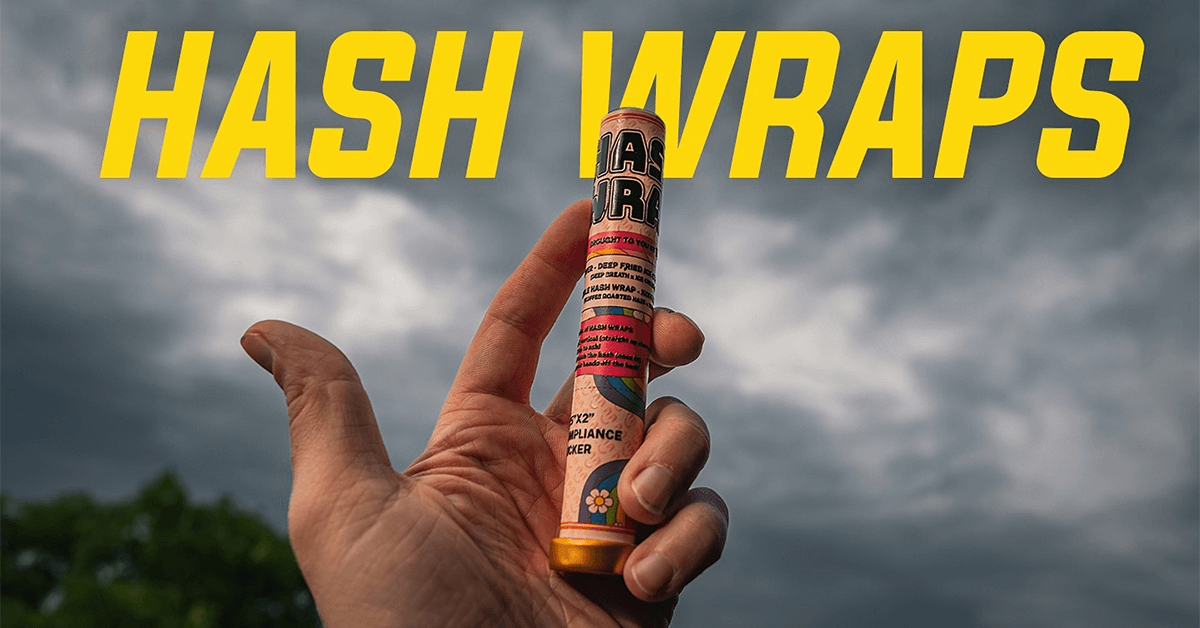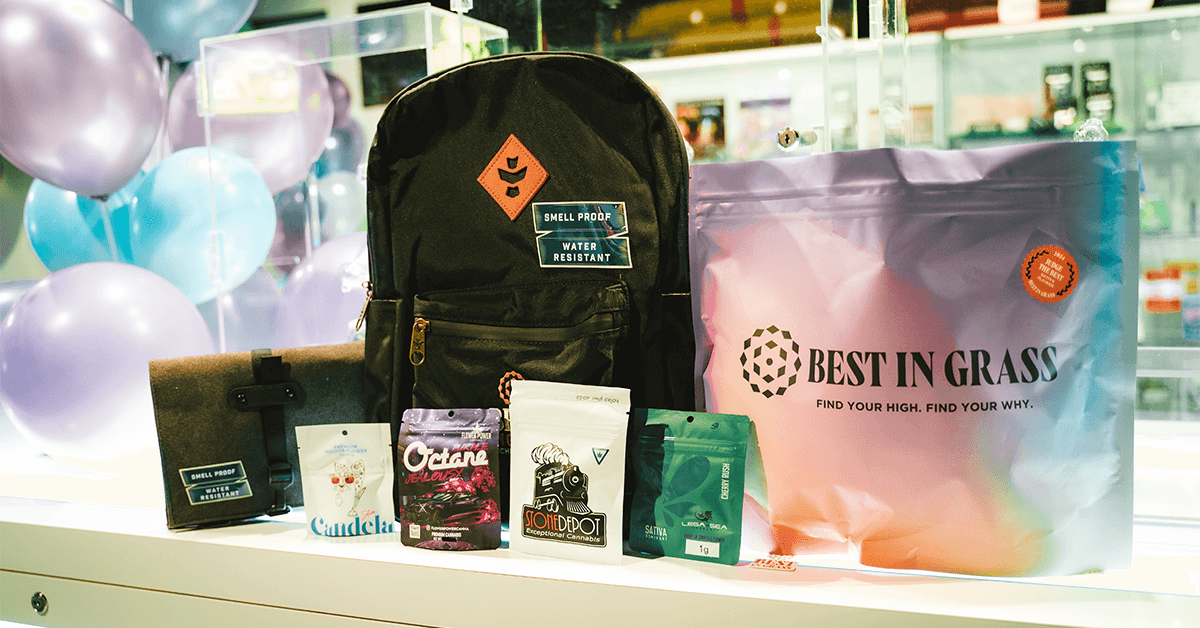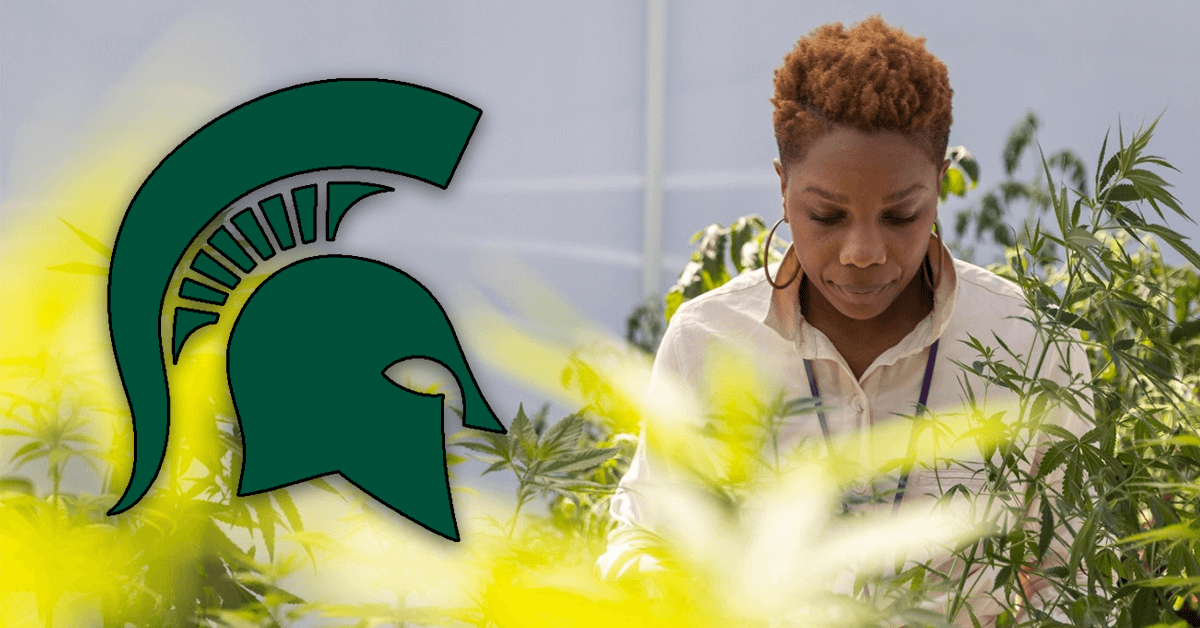Hunna's Revolutionary Paperless Hash Wraps Hit Michigan

In a groundbreaking development for Michigan's cannabis market, Hunna introduces its unique paperless pre-rolls, setting a potential trend for future product offerings in the industry. This new concept in cannabis consumption, dubbed "Hunna Hash Wrap," does away with traditional rolling papers and tobacco, opting instead for a fully THC-enriched experience wrapped in pure hash.
What Sets Hunna Hash Wraps Apart?
The Hunna Hash Wrap is crafted entirely from hash, either full melt or ice water hash, which serves as the wrap itself, eliminating the need for any paper. This innovative approach not only enhances the purity and potency of the THC experience but also intensifies the flavor, with terpenes flooding the senses. The initial flavors to be released are "deep fried ice cream" and "superboof," both of which promise a unique taste profile.
The Design and Consumption of Hunna Hash Wraps
Each pre-roll is equipped with a glass filter / tip, adding a level of sophistication and ease, as there is no preparation needed. Consumers are advised to handle the pre-roll carefully — it should be kept vertical at all times to avoid damage and ensure optimal burning. Lighting the hash wrap requires patience and a steady hand, with a recommendation to spin the joint slowly to achieve an even burn. The delicate nature of the hash wrap also means that it should not be ashed traditionally, as it is self-ashing when ready.
Purchasing and Enjoying the Product
Hunna's paperless pre-rolls are a limited edition in Michigan, with only 90 units available initially. Interested buyers need to secure a pre-order ticket at dispensaries that carry them and redeem it a week later to receive their pre-roll. The potency and delivery method make the Hunna Hash Wrap comparable to experiencing very strong dabs, making it advisable to enjoy the product slowly and possibly with friends, due to its intense effects.
Environmental and User Considerations
By removing paper from the equation, Hunna is also tapping into a more environmentally conscious consumption method. Additionally, the end of the smoking experience leaves consumers with a reusable glass tip and a small amount of residual hash, which can be enjoyed as a final treat later on.
Implications for the Industry
Hunna's introduction of the paperless pre-roll may influence other companies to explore similar innovations, potentially leading to a shift in how cannabis is consumed commercially. The uniqueness and limited availability of the Hunna Hash Wrap could create a buzz that sets new standards in the cannabis product market, emphasizing purity, potency, and environmental considerations.
Conclusion
The Hunna Hash Wrap represents a significant innovation in the Michigan cannabis market, offering consumers a new way to experience THC through a unique, paperless format. This product not only challenges traditional consumption methods but also sets a precedent for future products in the industry.
Last Chance to Judge in Michigan's Best in Grass Cannabis Competition

Michigan's burgeoning cannabis industry takes a celebratory turn with the debut of the "Best in Grass" cannabis competition. Initiated by Mark Kazinec, this event is set to highlight top-tier, locally-grown cannabis in 14 recreational categories. Interested participants looking to judge these products must hurry, as the registration deadline is rapidly approaching on May 19th.
What Judges Can Anticipate
Judging at the Best in Grass competition is more than an observational role—it's an active contribution to the future of cannabis in Michigan. Each judge will be equipped with a special kit containing diverse cannabis products and a Judge Access Card for entry into an exclusive judging portal. Here, judges will assess entries on visual appeal, aroma, taste, and effects, offering detailed feedback.
Mark Kazinec stresses the importance of individuality in the judging process. "We provide examples of thorough judging comments," he notes, "but we respect that each judge brings their own palate and unique perspective, which we encourage them to express freely."
Competition Goals and Impact
The Best in Grass aims not only to recognize the finest cannabis products but also to engage real Michigan consumers. Kazinec explains that the competition serves as a platform for consumers to explore new brands and provide feedback, crucial for brands aiming to refine their products. This feedback loop promises to enhance the overall quality of cannabis offerings available to the public.
A Distinct Approach
Distinguishing itself from other events, Best in Grass prides itself on fairness and transparency. Unlike typical competitions judged by industry insiders, this event employs a broad pool of impartial judges to avoid bias, ensuring genuine, reliable results. Measures are also in place to prevent brands and their affiliates from judging, maintaining the integrity of the competition.
Overcoming Challenges
Organizing such a comprehensive event is not without its hurdles, especially regarding compliance and regulations. Kazinec and his team are committed to overcoming these challenges through diligent collaboration with businesses and communities, ensuring the competition adheres to legal standards.
Join the Celebration
Judges participating in Best in Grass will have the unique opportunity to attend the live awards ceremony at the Royal Oak Music Theatre on June 18th. Dubbed the "Oscars of the cannabis industry," the event will feature a green carpet and a black-tie/cocktail dress code, allowing judges to connect with the creators of the products they reviewed.
As the competition draws to a close with the deadline on May 19th, the anticipation builds with early results trickling in. This is a prime opportunity to help determine the standout cannabis products in Michigan. For those interested in joining as judges, register promptly to secure a spot in this landmark event.
For further details on contest rules or inquiries, please visit bestingrass.io.
Westland Tool and Die Shop Transitions to Cannabis to Revive Family Business

A long-standing tool and die shop in Westland, Michigan, is pivoting to the cannabis industry to breathe new life into its business. R&A Tool and Engineering, located at 39127 Ford Road, is planning to establish a cannabis microbusiness on its premises, named Ancient Herbs.
The Westland City Council previously greenlit the initiative last summer, and now, owner Greg Raymond is pursuing special land use approval to operationalize the microbusiness. This move was supported by the city's planning commission, which recently recommended approval during their meeting on May 7th.
Raymond expressed his commitment to the new venture, saying, "I'm going to do my best to make this a win-win situation for the city and for my employees. I understand the responsibility that comes with a license, and I'm willing to take that on." He sees the introduction of the cannabis microbusiness not only as a strategic shift but as a way to sustain a property that has belonged to his family since 1968.
Cannabis microbusinesses are unique in that they are allowed to cultivate up to 150 plants on-site, and can also process and sell their products directly to consumers from the same location. This model supports a more distinctive product offering due to its independent operation.
The proposed business would mark the second cannabis microbusiness in Westland, a city that anticipates a notable increase in tax revenue from such establishments over the next six years.
Despite the change in business focus, Raymond plans to continue operating the tool and die shop as long as feasible, though he acknowledges it will eventually close. The industry has faced challenges, particularly as many manufacturing jobs have moved overseas. "We're just trying to play the cards we were dealt," Raymond commented on the economic shifts.
The addition of the cannabis microbusiness is expected to create approximately 30 new jobs, contributing to local employment and economic diversity.
The Case of Odor as Probable Cause: People of the State of Michigan v. Jeffery Armstrong

In a landmark case that has reverberated through Michigan's legal landscape, the issue of whether the odor of cannabis alone can constitute probable cause for police to conduct searches has come under intense scrutiny. This pivotal legal debate unfolded following an incident in Detroit, where police officers cited the smell of cannabis as the reason to order Jeffery Armstrong out of his vehicle, ultimately leading to his arrest after discovering an illegal firearm under the seat he occupied.
Background of the Case
The legal journey began when Detroit police detected the scent of cannabis emanating from a vehicle in which Jeffery Armstrong was a passenger. Acting on this observation, they conducted a search which revealed an illegal gun. Armstrong challenged the search, arguing that since Michigan voters had legalized recreational cannabis, the mere presence of its odor should no longer be sufficient grounds for such police actions.
Legal Proceedings
The trial court sided with Armstrong, ruling that the odor of cannabis alone, in the context of its legalization, does not meet the threshold for probable cause necessary for searches and seizures. This decision was upheld by the Michigan Court of Appeals. The matter was then escalated to the Michigan Supreme Court, drawing significant attention from legal experts and advocacy groups.
Amicus Briefs and Legal Opinions
Highlighting the broader implications of this case, the Cato Institute and the Institute for Justice submitted an amicus brief supporting Armstrong's position. They argued that allowing searches based solely on the smell of a legally permissible substance could lead to unconstitutional practices, undermining the intent of Michigan's electorate to alleviate overcriminalization. This stance underscores a critical examination of how law enforcement practices must evolve in response to changing legal and social landscapes.
Constitutional and Legal Challenges
This case taps into fundamental questions about the Fourth Amendment, which protects citizens from unreasonable searches and seizures. Advocates argue that strict adherence to constitutional guarantees is essential, especially when the legality of substances like cannabis evolves. The legal discourse focuses on ensuring that probable cause is not merely speculative but based on clear evidence that aligns with both legal standards and contemporary societal norms.
Implications for Law Enforcement
The outcome of this case has significant ramifications for law enforcement protocols. It challenges officers to adapt to the nuances of laws that have shifted due to voter initiatives and societal changes. Training and operational guidelines may need revisiting to ensure that police actions remain within the bounds of the law while effectively addressing public safety.
Conclusion
As Michigan navigates the complexities introduced by the legalization of cannabis, the case of Jeffery Armstrong serves as a crucial benchmark for assessing the balance between individual rights and law enforcement duties. The Michigan Supreme Court's forthcoming decision will not only impact Armstrong but also set a precedent that will influence the interpretation of probable cause in the context of legalized substances across the state.
For more detailed legal insights, you can access the complete amicus brief filed by the Cato Institute and the Institute for Justice here.
From Schedule I to III: MSU Explores the Implications of Cannabis Reclassification

The discussion on reclassifying cannabis has intensified at Michigan State University (MSU), where specialists are examining the potential impacts of changing cannabis from a Schedule I to a Schedule III substance. This anticipated adjustment by the U.S. Drug Enforcement Administration could significantly broaden the scope for research and clinical trials, potentially transforming medical treatment and societal perceptions of cannabis.
Unlocking Medical Research Potential
The possible reclassification of cannabis is seen as a gateway to medical progress. With fewer research restrictions, MSU scientists are keen to investigate the therapeutic benefits of cannabis and its components, including CBD, THC, and CBN. This shift could particularly benefit patients suffering from chronic pain and cancer by providing them with alternative treatment avenues previously blocked by regulatory barriers.
However, this optimism is balanced with caution. Experts highlight that while reclassification could simplify the path to medical research, it may also lead to heightened misuse and abuse. The healthcare system, already burdened by addiction treatments, might face further challenges. Additionally, easier access could impact vulnerable groups such as children and pregnant women, who are advised against cannabis use.
Social Implications of Reclassification
The reclassification could also have deep social ramifications. There is active discussion about how this change could affect individuals previously incarcerated for cannabis-related offenses, potentially addressing long-standing racial disparities. Data indicates that Black individuals are disproportionately arrested for cannabis offenses compared to their white peers, despite similar usage rates. This policy change could act as a springboard for more extensive political, societal, and cultural shifts, fostering equity and justice.
MSU experts are calling for a cautious approach to reclassification, recommending an increase in the addiction medicine workforce to balance the potential benefits against the risks of misuse.
The Future of Cannabis Research
The reclassification could unlock a treasure trove of data on cannabis's effects on various health conditions, including HIV, diabetes, and cardiovascular and metabolic disorders. MSU researchers are eager to lead this investigation, exploring the scientific underpinnings of cannabis and its potential health advantages.
The path forward is fraught with complexities and potential side effects that require prudent management. Nevertheless, the consensus among MSU experts is that the reclassification of cannabis is a crucial step towards fully understanding and leveraging its capabilities, both medically and socially.
House of Dank Lansing Debuts with Grand Opening Celebrations

House of Dank Lansing is set to launch its new location with a grand opening event on Saturday, May 11th from 9:00 a.m. to 6:00 p.m. at 2905 N East St., at the intersection with Chilson Ave. Although the grand opening festivities conclude at 6:00 p.m., the store will remain open until 10:00 p.m., offering extended hours for visitors to explore a variety of grand opening specials.
The event is open to individuals 21 years of age and older, offering them a chance to explore an extensive range of cannabis products. The day is packed with exclusive promotions and interactive experiences, including giveaways, vendor swag, and the chance to engage with knowledgeable staff in a dynamic setting.
The festivities kick off at 9:00 a.m., with the first customer receiving a special gift. Additionally, the first 100 visitors will enjoy a complimentary gift with their purchase. Early attendees can benefit from several doorbuster giveaways, and a unique giveaway is scheduled for 4:20 p.m. Moreover, all patrons making a purchase during the grand opening will be entered into a raffle with prizes such as gaming systems and smoking accessories.
Marvin Jamo, owner of House of Dank Lansing, expresses his enthusiasm about the opening: "Lansing, welcome to our HOUSE! We are thrilled to offer outstanding deals, high-quality products, competitive prices, and unparalleled customer service."
The grand opening will feature a host of activities, including music from a DJ, food trucks, games, and appearances by brand partners offering prizes. Attendees will also have the opportunity to meet Kash, the popular cannabis mascot. The celebration will include a ribbon-cutting ceremony scheduled between 12:00 p.m. and 1:00 p.m.
As a prominent player in Michigan's cannabis market, House of Dank not only offers premium cannabis options but also provides a line of CBD products, exclusive merchandise, and a rewards program. The store also supports convenience through home and curbside delivery services within a 20-mile radius.
Looking ahead, House of Dank plans to continue its expansion with upcoming openings in Ann Arbor and Kalamazoo later this year. Committed to customer wellbeing and community engagement, House of Dank strives to deliver excellence and expertise in the cannabis industry.


 Helpful Links
Helpful Links